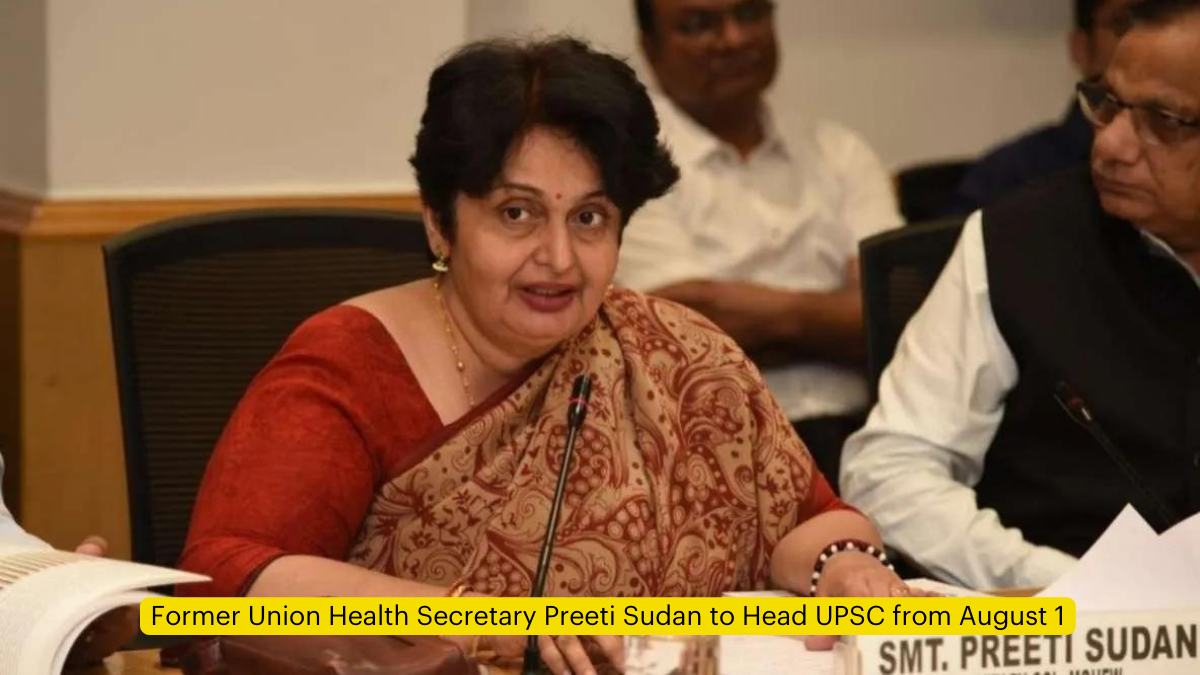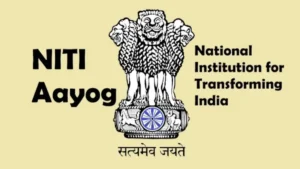New Chairperson Appointment
Former Union Health Secretary Preeti Sudan is set to assume the role of Chairperson of the Union Public Service Commission (UPSC) on August 1, 2024. This appointment is made under Article 316 A of the Constitution, as confirmed by a government official.
Current Position and Transition
Ms. Sudan, who is currently serving as a member of the Commission, will be stepping into the shoes of Manoj Soni, the outgoing Chairperson. Mr. Soni recently tendered his resignation, citing “personal reasons” for his departure.
Tenure Details
The newly appointed Chairperson’s tenure is scheduled to last until April 2025, coinciding with Ms. Sudan reaching the age of 65. This timeline aligns with the constitutional provisions governing the UPSC leadership.
Unexpected Resignation of Manoj Soni
Premature Departure
Mr. Soni’s resignation comes as a surprise, as it precedes the original end of his tenure by almost five years. His term was initially set to conclude in 2029, making this an early exit from the prestigious position.
Career Timeline at UPSC
- Joined the Commission as a Member in 2017
- Sworn in as Chairperson on May 16, 2023
- Resigned in July 2024
Controversy and Speculation
Ongoing UPSC Scandals
The leadership change occurs against the backdrop of a controversy involving UPSC candidates who allegedly secured employment by presenting fake certificates. This situation has cast a shadow over the Commission’s recruitment processes.
Unrelated to Recent Case
Sources close to the matter have emphasized that Mr. Soni’s resignation is not connected to the recent controversy surrounding trainee Indian Administrative Service (IAS) officer Puja Khedkar. Ms. Khedkar is alleged to have forged identity papers and presented a fraudulent disability certificate to gain entry into the service.
UPSC: A Constitutional Body
Legal Foundation
The UPSC is established as a constitutional body under Articles 315-323 Part XIV Chapter II of the Constitution of India. This legal framework ensures the Commission’s autonomy and significance in the Indian administrative system.
Key Responsibilities
- Conducting Various Examinations: The UPSC is tasked with organizing multiple examinations on behalf of the Union government.
- Civil Services Examinations: One of its most prominent roles is the annual conduct of civil services examinations.
- Recruitment Recommendations: The Commission recommends candidates for appointment to prestigious services including:
- Indian Administrative Service (IAS)
- Indian Foreign Service (IFS)
- Indian Police Service (IPS)
- Central Services – Group A and Group B
Organizational Structure
- The Commission is led by a Chairperson
- It can have a maximum of 10 members
This comprehensive structure and set of responsibilities underline the UPSC’s crucial role in shaping India’s civil services and maintaining the quality of its administrative workforce.
Important takeaways for all competitive Exams
- UPSC Founded: 1 October 1926;
- UPSC Headquarters: Dholpur House, Shahjahan Road, New Delhi.




 Slice Small Finance Bank Appoints Rajan ...
Slice Small Finance Bank Appoints Rajan ...
 Nidhi Chhibber Takes Charge as NITI Aayo...
Nidhi Chhibber Takes Charge as NITI Aayo...
 Harsharan Kaur Trehan Becomes PSPCL’s Fi...
Harsharan Kaur Trehan Becomes PSPCL’s Fi...








